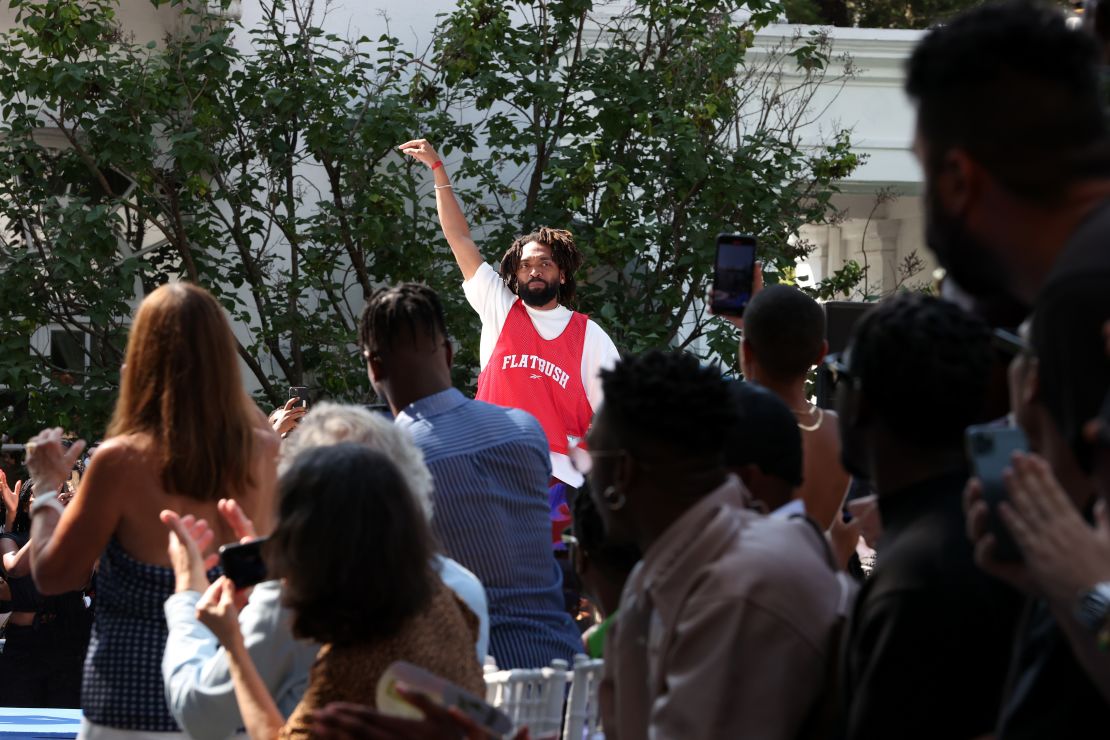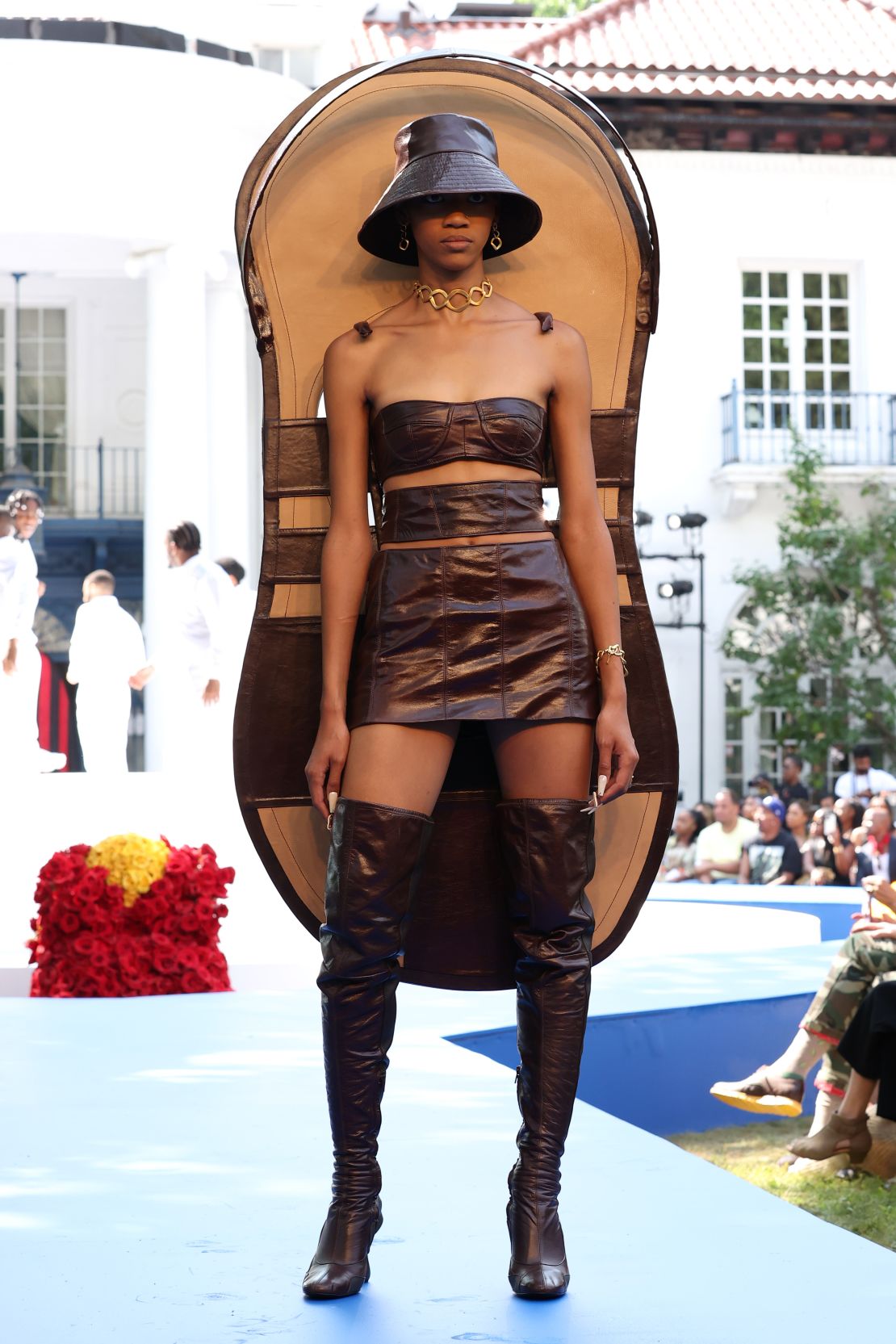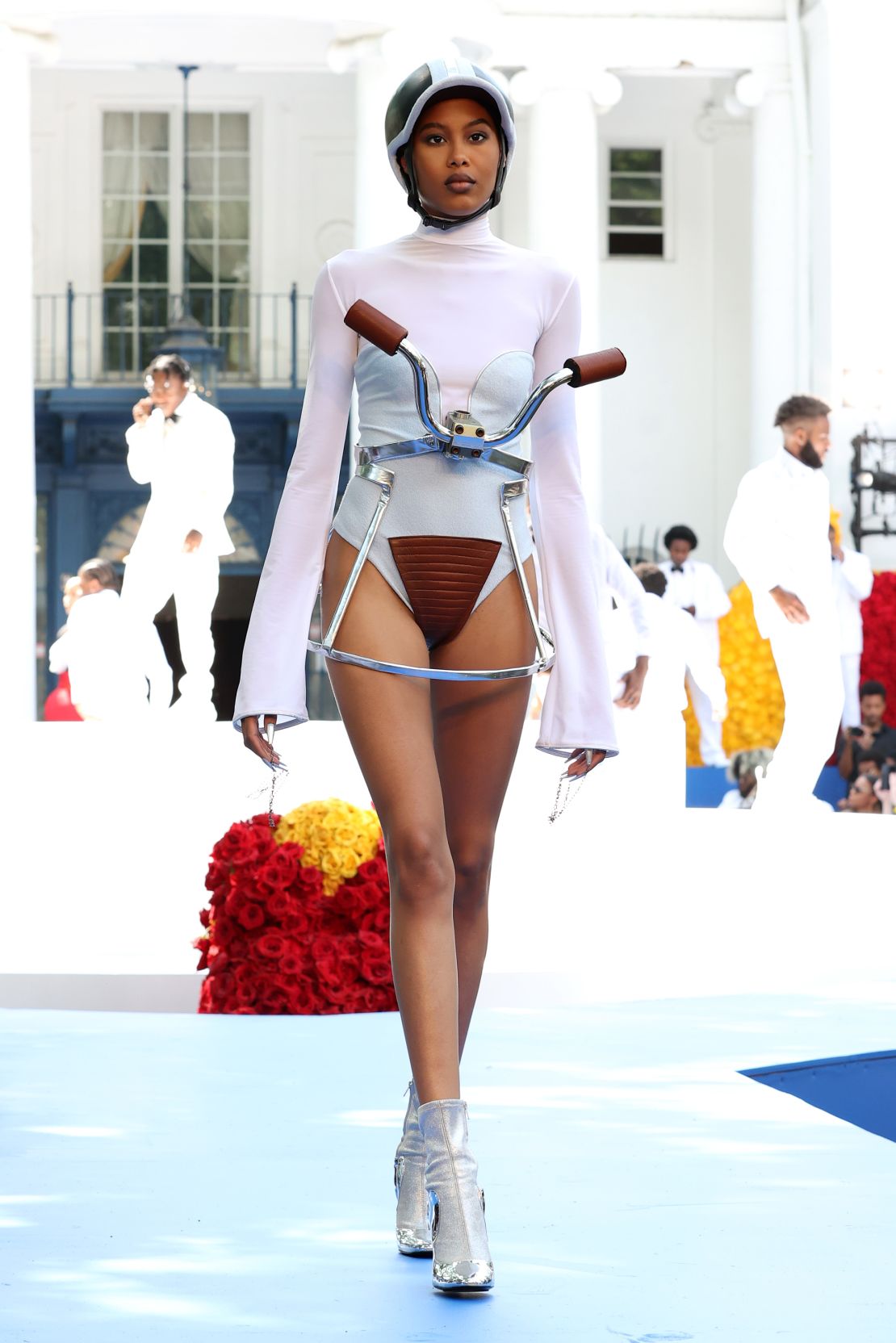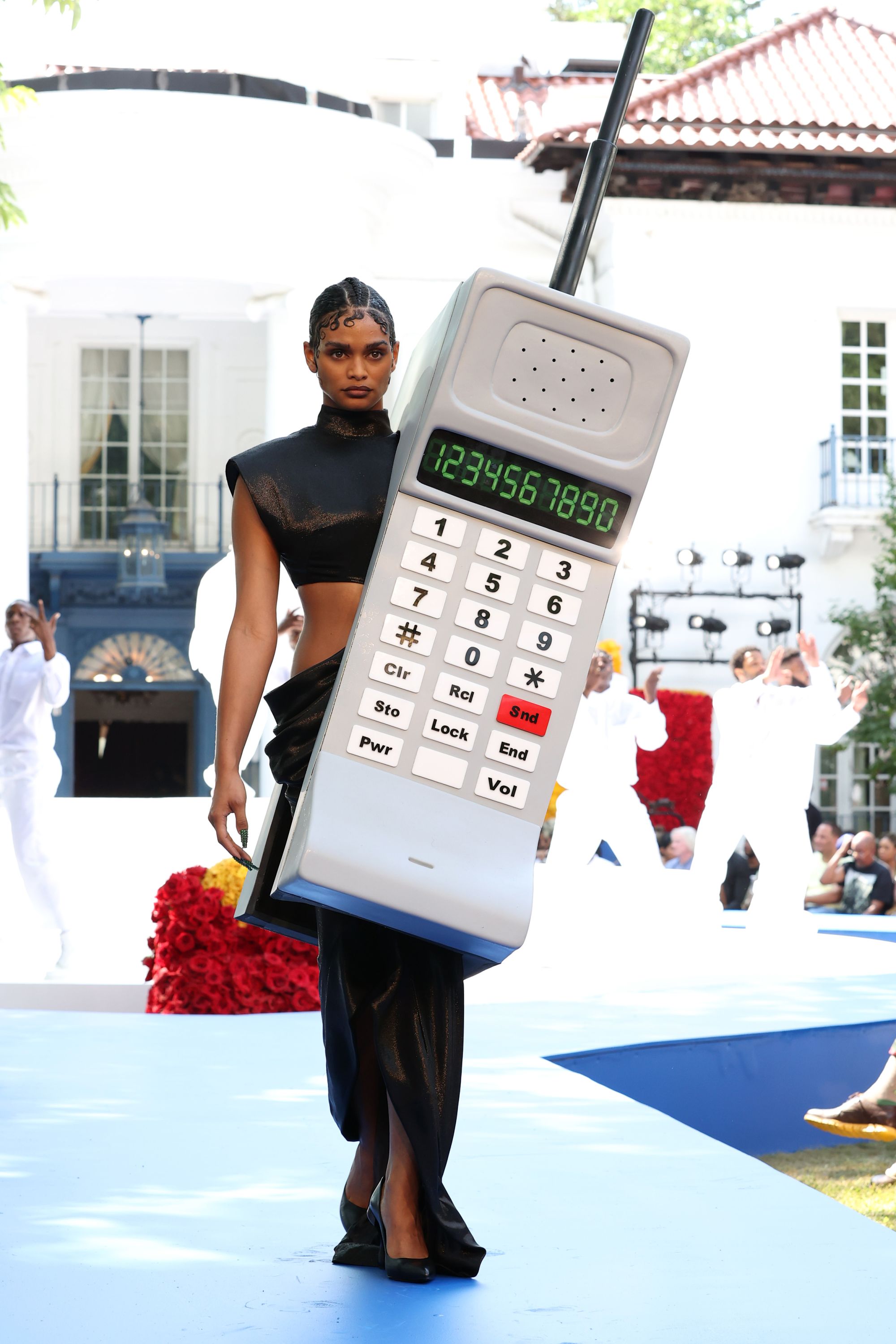Outside the historic Villa Lewaro mansion in Irvington, New York, Pyer Moss founder and creative director Kerby Jean-Raymond became the first ever Black American designer to show at Paris Haute Couture Week. In his highly anticipated show, “Wat U Iz,” the designer sent models down a vivid blue runway in larger-than-life garments referencing everyday objects created by Black inventors.
The live-streamed showcase took place two days later than anticipated, after torrential downpours saw the first attempt called off. With a hasty 48 hours to restage months of work, Jean-Raymond finally showed his collection on Saturday. It comprised high-concept, meticulously fabricated clothing based on recognizable items, including a bicycle, traffic light, chessboard, fire escape, Super Soaker, refrigerator and mop.
Former Black Panther Party chairwoman Elaine Brown spoke ahead of the show, which also featured performances from Brooklyn rapper 22Gz and a live string orchestra. The grounds were part of the story, too. The idyllic 34-room Italianate mansion was once home to Black entrepreneur and activist Madam C.J. Walker, considered to be America’s first female self-made millionaire. Born to formerly enslaved parents, Walker built a beauty empire from a single hair care product for Black women.
Pyer Moss couture show honors Black inventors
“Wat U Iz” was a history lesson injected with a dose of Pop Art humor, from its silhouettes of peanut bar jars and cellphones to a meticulous cascade of hair rollers styled like an 18-century powdered wig. It was also a display of Black ingenuity – something that “there’s no shortage of,” Jean-Raymond said in a video interview following the show.
“Oftentimes, though, among our community, we often berate and belittle people who are making money in their respective crafts,” he added. “So much so that we’ve learned to undervalue our work and undervalue our time. I’m trying to flip that narrative, because I understand that that narrative is a trap.”
Since Pyer Moss became a fashion week mainstay in 2015, the label’s slick mens and womenswear collections, which meld street style and high fashion, have been worn by famous figures from Colin Kaepernick and Zendaya to US Vice President Kamala Harris.

Speaking about his historic appearance on the Paris Haute Couture Week schedule, Jean-Raymond said he doesn’t take the responsibility lightly. “I wanted to use the stage to share with other Black Americans who inspire me – and Black people who inspired me. So I chose to make the collection a highlight reel, in a way, of many of the things we’ve contributed to society at large.”
Layered storytelling
Couture may be new ground for Jean-Raymond, who founded Pyer Moss in 2013, but his collection’s thoughtful reflections on Black history and culture continues the brand’s longstanding commitment to storytelling. Describing his label as an “art project that operates in the fashion space,” the Haitian-American designer told CNN Style in 2019: “It has to represent me. It has to be a representation of the people who made it, because who needs it? Who needs clothes at this point? You can get clothes anywhere.”

There are always layers to peel back at Pyer Moss’ shows. At the label’s headline-grabbing debut at New York Fashion Week in 2015, the specter of police brutality was present in every look, from references to Eric Garner’s haunting last words, “I can’t breathe,” to clothing tagged with spatters of mock blood during the show by artist Gregory Siff.
Pyer Moss then retold the American story in a three-part show, from 2018 to 2019, working with visual artist Derrick Adams on one of the collections to create powerful imagery of Black life, including a glittering crystal-embellished gown depicting a father holding his baby.
And Jean-Raymond’s runway venues are, like Madame CJ Walker’s estate, often steeped in history. Recent locations include Weeksville, Brooklyn, the site of one of America’s first free Black communities, and the Kings Theater in nearby Flatbush, where Pyer Moss hired a 90-member gospel choir to celebrate the life of Sister Rosetta Tharpe, a Black musician often known as the godmother of rock’n’roll.
Black prosperity
For his latest show, however, Jean-Raymond had to define what couture means for Pyer Moss, a label that relies on direct-to-consumer sales for 70 percent of its business, according to the Cut.
“A lot of times when we do runway, we’re constantly blending these highly conceptual ideas with commerciality – with what consumers are going to think. Who’s gonna buy this?” he said. “But … here it was just like, ‘Let’s just do anything we want.’”
Having scrapped their first concept entirely, Jean-Raymond and his team based the collection on research into the US Library of Congress’ archive of inventions (and an outing to Joshua Tree, California, that saw them drinking psychedelic ayahuasca together).
Encountering the list of Black inventions was humbling, he said. “I was really taken aback. I pride myself on being very knowledgeable on Black history. And a lot of that stuff I didn’t have (prior) knowledge of,” he added.

Pyer Moss worked with fabricators to bring the objects to life, but each look was made by hand. Some, like a white long-sleeve leotard outfitted with bicycle handles, took a week to make. Others, like dresses inspired by hair curlers and a bottle caps, took months. This fall, the label plans to stage an exhibition about the collection at Madam C.J. Walker’s estate together with Nicola Vassell, who this year opened the first Black-owned gallery in New York’s Chelsea neighborhood.
But illustrating what wealth looks like can be complicated – especially when history has shown that marginalized creators are not always given the credit or compensation they’re due. “I believe that Black wealth matters, and I wanted to put it on display,” Jean-Raymond said.
“Here’s the Super Soaker, here’s the curtain rod, here’s the peanut butter jar and all these other things that we had a hand in creating. But how many of those items became Black-owned industries? None of them.”





























